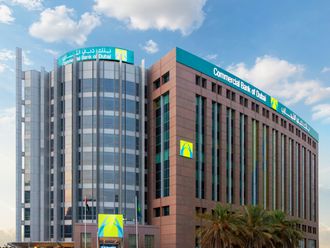Dubai: The insurance industry in the GCC is expected to grow in double digits between now and 2020, despite a potential slowdown in economic growth resulting from sustained decline oil prices, according to a study by Alpen Capital.
“The GCC insurance industry continues to grow at a double-digit CAGR (compounded annual growth rate) despite a challenging 2014, backed by increased awareness and favourable regulatory changes in most of the GCC nations. The industry is thus expected to continue to grow in the upcoming period, driven by government spending on infrastructure and a gradual increase in insurance penetration level in the region,” said Sameena Ahmad, Managing Director, Alpen Capital (ME) Limited.
The scale and growth of the insurance industry is strongly correlated with a country’s economy. The GDP of the GCC economies is strongly linked to oil prices.
In a high growth scenario, assuming significant recovery in oil prices from the current level, the GCC insurance industry is expected to reach $62.1 billion by 2020, registering a compound annual growth rate (CAGR) of 18.7 per cent for the period 2014-2020.
In a moderating growth scenario, the industry is expected to reach a size of $49 billion by 2020 at a 14.1 per cent CAGR. IMF’s forecasted drop in the GDP of the GCC countries for 2015 and the volatility in oil prices are expected to result in lower growth in premiums for 2015.
“Currently, the GCC insurance industry is transitioning from being a protected industry into a globally competitive sector. With governments realising the importance of an efficient and stringent regulatory requirement to foster growth, the industry is seeing several reforms to combat challenges such as slowdown in profitability and premium growth resulting from intense competition,” said Sanjay Vig, Managing Director, Alpen Capital (ME).
Growing at a CAGR of 20.2 per cent between 2014 and 2020, the non-life insurance segment is likely to outperform the life insurance segment (CAGR of 5.9 per cent), primarily due to its line of compulsory insurance products and encouraging regulatory reforms.
Overall insurance penetration in the GCC nations is expected to increase to 3.3 per cent in 2020 from 1.4 per cent in 2014. At the same time, insurance density is expected to more than double.
Saudi Arabia, the largest country in terms of population, is likely to overtake the UAE as the largest insurance market in the region and drive the growth of the GCC insurance industry between 2015 and 2020.
Qatar is one of the fastest growing markets and is likely to remain at the third position after the UAE and Saudi Arabia.
The insurance industry is also likely to benefit from medical insurance having been made mandatory under law in most of the GCC nations.
The ongoing regulatory reforms regarding the minimum capital requirement, reporting requirement, and pricing are likely to drive growth in the insurance industry.
While low oil prices pose challenges to GCC’s economic growth and hence the growth of insurance sector other challenges such as low insurance penetration and intense competition are challenging their profitability.
The investment mix of the Gulf-based insurers is skewed towards riskier assets such as equity and real estate, exposing their investment income to market fluctuations and the state of the economy.
Although consolidation is relatively uncommon in the GCC, as most insurance businesses are either family owned or closely held by a limited number of shareholders, the study expects sustained margin squeeze to force some players to consider mergers.











